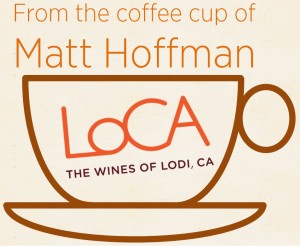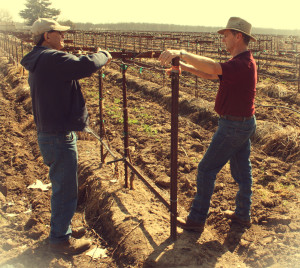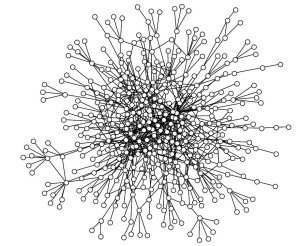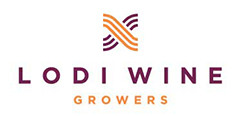 Most pickup trucks seat two people comfortably. But most growers show up to outreach events such as field days and breakfast meetings solo, with nothing but the radio to keep them company. How connected are you to Lodi’s rich knowledge network of growers, PCAs, farm advisers, vintners, and other industry professionals? Good common sense, as well as a large body of research (Warner 2007) tells us that those growers who are in communication with many others are more likely to find innovative solutions to their viticultural challenges. With this in mind, I want to take this opportunity to encourage you to expand your knowledge network by inviting a fellow grower to the next outreach event hosted by the Lodi Winegrape Commission.
Most pickup trucks seat two people comfortably. But most growers show up to outreach events such as field days and breakfast meetings solo, with nothing but the radio to keep them company. How connected are you to Lodi’s rich knowledge network of growers, PCAs, farm advisers, vintners, and other industry professionals? Good common sense, as well as a large body of research (Warner 2007) tells us that those growers who are in communication with many others are more likely to find innovative solutions to their viticultural challenges. With this in mind, I want to take this opportunity to encourage you to expand your knowledge network by inviting a fellow grower to the next outreach event hosted by the Lodi Winegrape Commission.
 Outreach events, including breakfast meetings, field days, and even social gatherings, are one of the primary services the Commission offers to Lodi growers. These events are intended to provide you with opportunities to grow your knowledge about viticulture. I estimate that about 30 to 50 growers attend outreach events. At the recent mechanical pruning field day, I counted about 50 folks in attendance. Last week’s nematode control breakfast meeting brought in 79 – well above the average. While the Commission’s outreach events are well-attended, I frequently think to myself, “where is the rest of our grower community?” With an estimated 750 growers in our district, many are not taking advantage of these great learning opportunities.
Outreach events, including breakfast meetings, field days, and even social gatherings, are one of the primary services the Commission offers to Lodi growers. These events are intended to provide you with opportunities to grow your knowledge about viticulture. I estimate that about 30 to 50 growers attend outreach events. At the recent mechanical pruning field day, I counted about 50 folks in attendance. Last week’s nematode control breakfast meeting brought in 79 – well above the average. While the Commission’s outreach events are well-attended, I frequently think to myself, “where is the rest of our grower community?” With an estimated 750 growers in our district, many are not taking advantage of these great learning opportunities.
Of course, the learning process is not limited to insight gleaned during a breakfast meeting or field day. Learning from other growers can help us verify what we already know or challenge what we think we already know. Learning from others, especially those with different backgrounds than us or those who we don’t frequently socialize with, can help us broaden and diversify our knowledge base. In other words, social learning is key to smart farming.

Social learning refers to learning from others. My general argument here is that learning about vineyard management is largely a social process that plays out among a local community of growers and outreach professionals (Hoffman 2011, Hoffman 2012). We can think of this community in terms of a social network of knowledge sharing, or what I call a knowledge network. The diagram to the right is Lodi’s knowledge network. Each node represents a grower or outreach professional, and each tie represents a knowledge sharing relationship. The data used to construct this network was collected from the 2011 Lodi Winegrowers Survey. Knowledge networks, are the social infrastructure around which social learning takes place. An a growers’s ability to engage in social learning activities such as co-creation, access, and sharing of ideas is either constrained or enabled depending on where he is located in this network. A grower in the center of the network, with relatively many knowledge sharing relationships has plentiful access to others’ ideas and can spread ideas through the network with ease. In contrast, those on the periphery of the network have much less access to others’ expertise.
The technique of social network analysis enables scientists to empirically study the relationship between a grower’s position in the knowledge network and her adoption of innovative practices. My PhD research at UC Davis (see the CEPB website) found that growers who frequently attended breakfast meetings and field days are more likely to have more knowledge sharing relationships than growers who attend infrequently. I also found that growers who have a high number of knowledge sharing relationships implement a greater number of practices from the Lodi Winegrowers’ Workbook. Social learning is key to smart farming.
How connected are you to Lodi’s knowledge network? Invite a fellow grower to the next outreach meeting and start to strengthen your network. Remember, the more knowledge sharing relationships you have, the better your odds in terms of access to innovative and practical solutions to your viticultural challenges. In practice, this can be accomplished by simply introducing yourself to a new face at the next field day or sitting at a table with an unfamiliar crowd at the next breakfast meeting, and asking “so fellas, what do you all think about today’s presentation?” Or, after the next breakfast meeting, turn down the radio in your pickup and ask the grower in the passenger seat to share his thoughts. Remember, social learning is key to smart farming.

